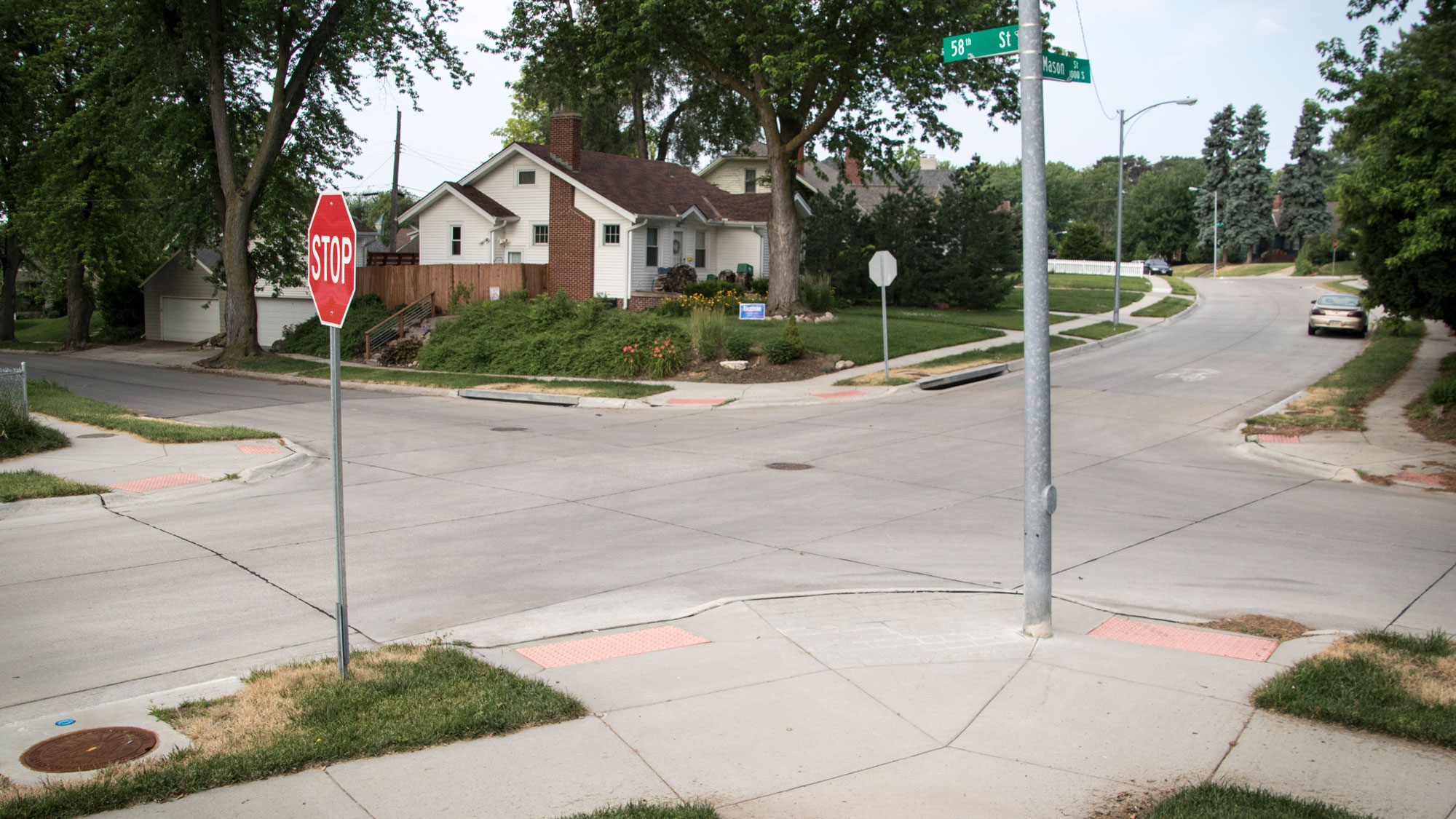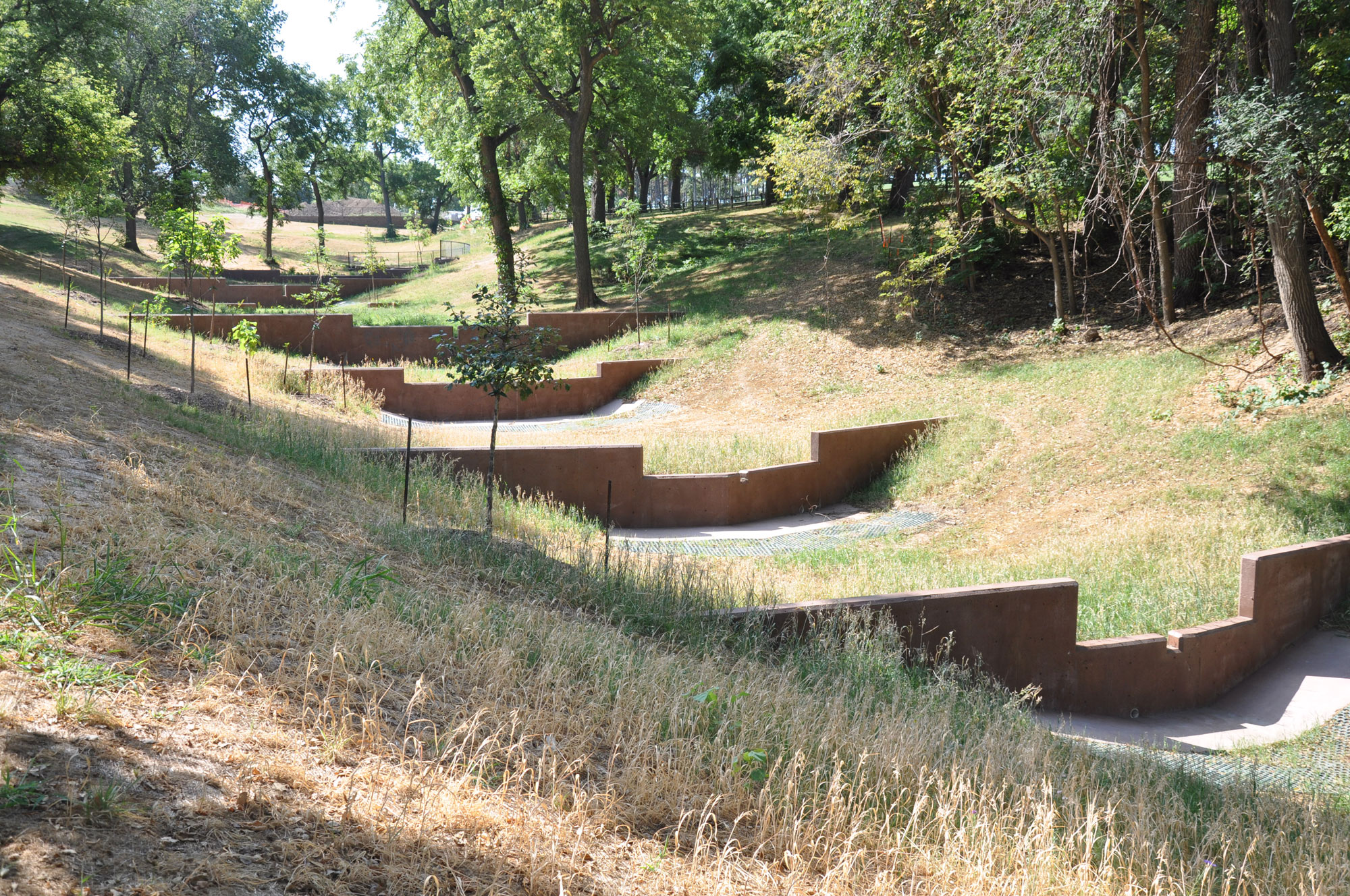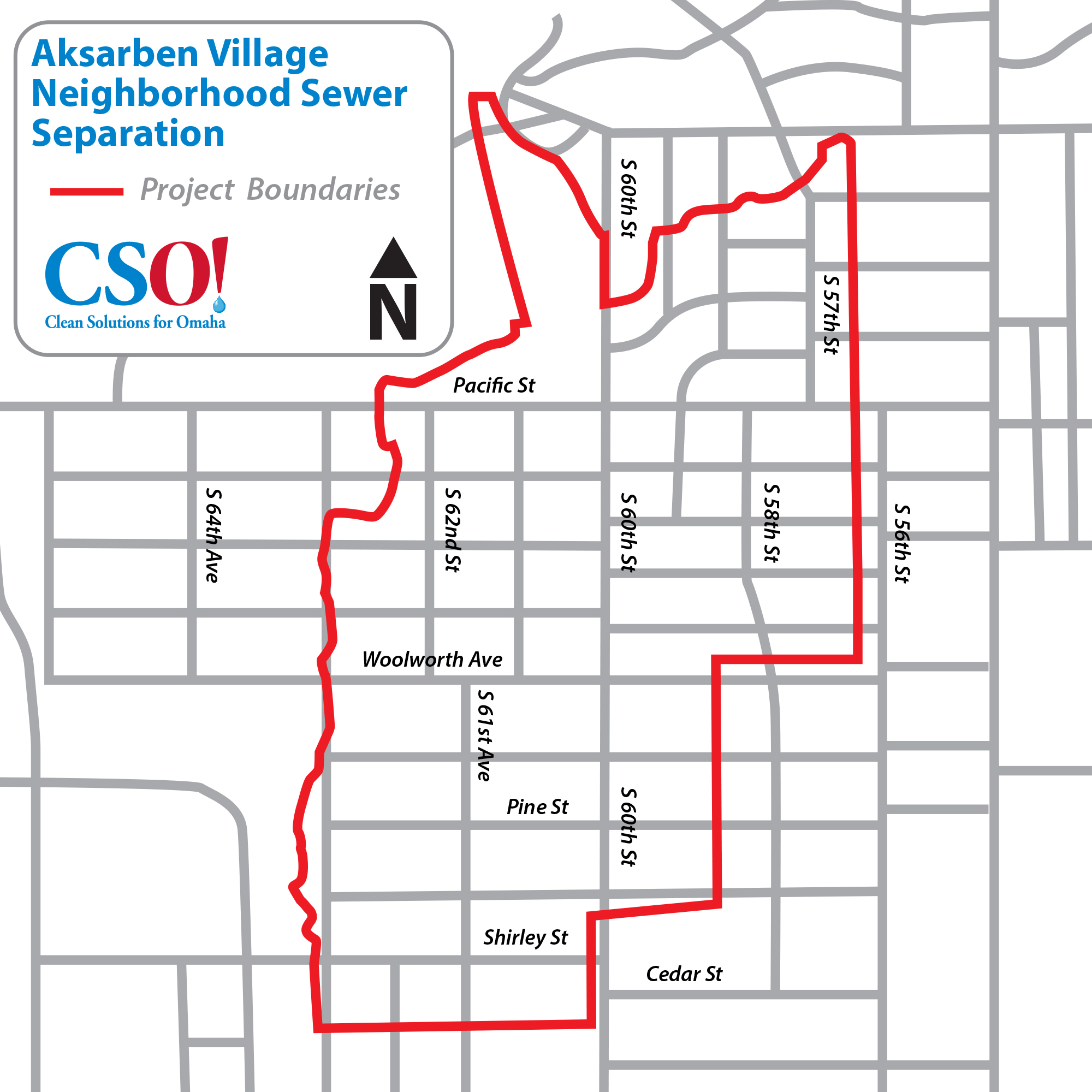Omaha CSO
Skip to content
As part of the Aksarben Village development, a storm sewer and sanitary sewer were extended to the intersection of 63rd and Shirley Streets to provide for separation of the combined sewers in neighborhoods surrounding Aksarben Village. For this project, new storm sewers were extended north and east to approximately 56th and Marcy Streets. Some of the new storm sewers carry stormwater north to Elmwood Park where it flows through a series of detention ponds referred to as the “Elmwood Diversion”. These ponds provide a cost effective, green stormwater solution by:
- Slowing stormwater runoff;
- Allowing the ground to absorb more stormwater;
- Reducing the amount of stormwater released into the creek;
- Improving the quality of water entering the creek; and
- Reducing overall project cost.
The existing combined sewers in the project area were converted to sanitary sewers to convey the sanitary flows to the downstream conveyance system. This project removed stormwater flows from the Saddle Creek combined sewers system and the Saddle Creek Retention Treatment Basin (RTB) facilities.
Green infrastructure: Elmwood Park

The Elmwood Park Diversion, just south of Elmwood Park Drive and west of 60th Street, was completed in the spring of 2012 as part of the CSO Program’s Aksarben Village Neighborhood Sewer Separation Project. The diversion plan utilizes green infrastructure to clean and reduce the velocity of stormwater, while protecting against erosion.
Seven staggered, slotted-weir structures resembling low concrete “dam” walls stretch across a natural ravine at various levels, creating a cascade of vertical drops measuring one to three feet high. In between weir structures, bioretention gardens containing wildflowers and native grasses were planted at three different levels to naturally clean and absorb water.
During wet weather events, a diversion pipe on the southeast side of the park collects and sends stormwater to the weirs. Together the weir structures and bioretention gardens help to naturally clean and slow the surge of stormwater. Excess water flows over the weirs, through the ravine into a detention basin below, where a bypass pipe directs it into Elmwood Creek.
The project followed the Omaha Parks and Recreation Department's tree mitigation standards, planting at least three times as many trees as were removed in the area. Fifty native trees, well-adapted to the area, were added to the Park including Northern Catalpa, Swamp White Oak, Hackberry and Kentucky Coffeetree. Low maintenance, native grasses including Blue Grama, Sideoats Grama, Little Bluestem and Buffalo Grass were planted in the bioretention gardens. Once established, these will require very little maintenance as they will naturally thrive.
The Elmwood Park Diversion Project utilizes natural ways of water flow while controlling stormwater. The weirs help to manage the water while the gardens retain moisture. This green infrastructure project reduced the overall cost of the CSO Program, saving an estimated $550,000 overall.
Additional Resources
- Spotlight: Green Infrastructure Benefits Omaha’s CSO Program – May 2018
- Elmwood Park Diversion Project Summary – March 2016



